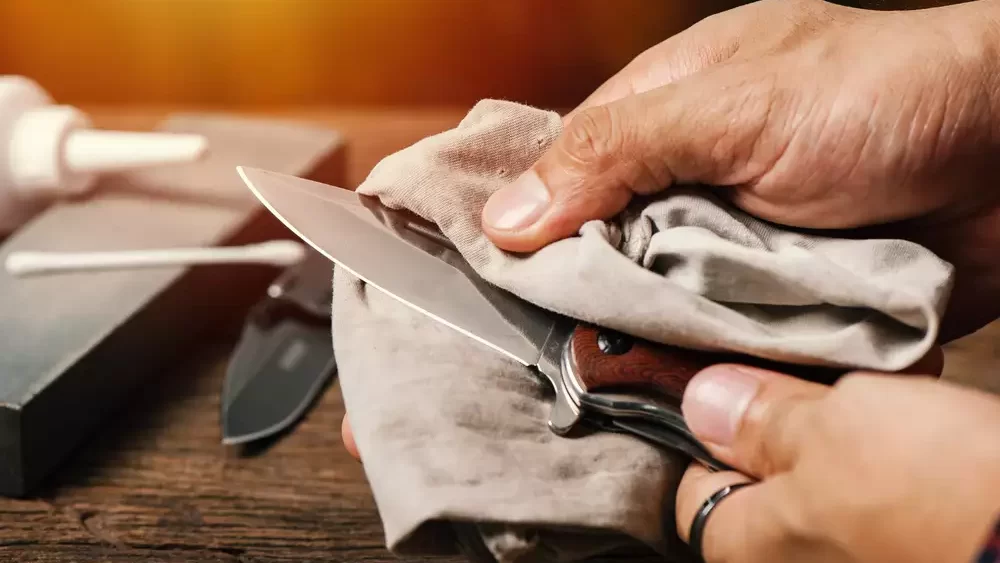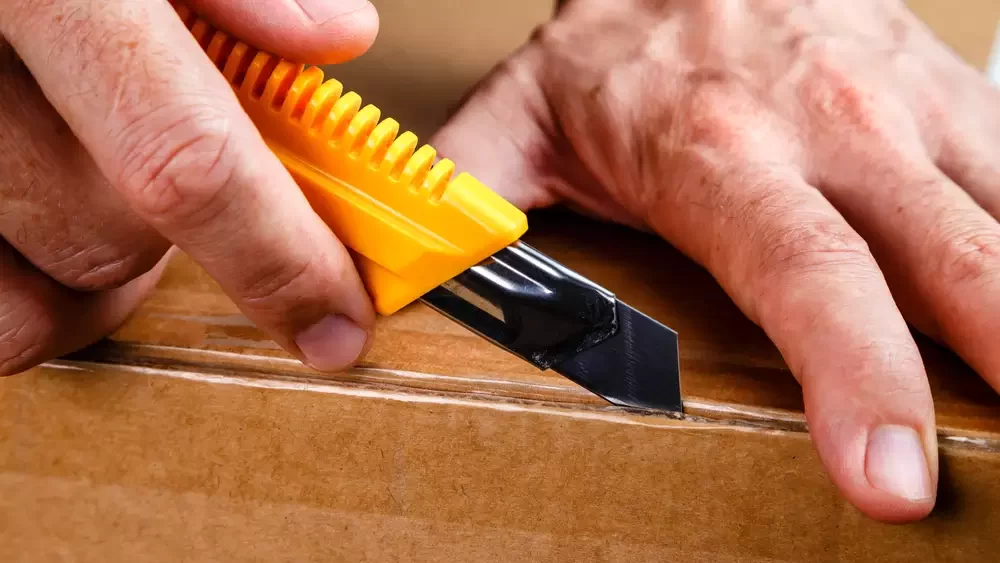When it comes to having a versatile, portable cutting tool in your arsenal, you might find yourself torn between a pocket knife and a utility knife.
Both are highly useful, but which one is best for your needs? In this comprehensive guide, we’ll dive deep into the world of pocket knives and utility knives, exploring their features, pros, cons, and best uses.
By the end, you’ll have a clear understanding of each tool’s capabilities and know which one is the perfect fit for your requirements.
Pocket Knives: A Brief Overview
What is a Pocket Knife?
A pocket knife is a compact, foldable cutting tool designed for portability and versatility. It usually features a single or multiple blades that can be folded into the handle when not in use.
Pocket knives come in various styles, sizes, and materials, catering to a wide range of preferences and purposes.
Advantages of Pocket Knives
Portability: Pocket knives are designed for easy transport, making them perfect for everyday carry (EDC) or outdoor adventures.
Versatility: With multiple blade styles and additional tools, pocket knives can handle various tasks, from cutting rope to opening packages.
Legalities: In many places, pocket knives are considered legal to carry, provided they meet specific size and blade requirements.
Disadvantages of Pocket Knives
Limited Durability: Due to their compact size, pocket knives may not be as durable as larger fixed-blade knives.
Less Precision: Pocket knives generally lack the precision offered by utility knives, making them less suitable for certain tasks.

Utility Knives: A Brief Overview
What is a Utility Knife?
A utility knife is a cutting tool with a replaceable, retractable blade, often used for cutting materials like cardboard, paper, and plastic.
These knives are commonly used in construction, arts and crafts, and various household tasks.
Advantages of Utility Knives
Precision: Utility knives offer greater precision for tasks requiring clean, accurate cuts.
Replaceable Blades: The ability to swap out dull blades for fresh ones means utility knives can maintain optimal performance.
Durability: Utility knives are typically more robust than pocket knives, making them better suited for heavy-duty tasks.
Disadvantages of Utility Knives
Limited Versatility: Utility knives usually have a single blade style, making them less versatile than pocket knives.
Portability: While still portable, utility knives may not be as compact or convenient to carry as pocket knives.

Comparing Pocket Knives and Utility Knives
Blade Material and Sharpness
Pocket knives often feature high-quality stainless steel or carbon steel blades, which can hold an edge well.
However, utility knife blades are generally made from high-carbon steel, providing a sharper cutting edge that’s perfect for precise tasks.
Safety Features
Both pocket knives and utility knives have built-in safety features. Pocket knives typically have a locking mechanism that prevents the blade from accidentally closing during use, while utility knives have a retractable blade that can be locked into place.
Price Range
Pocket knives can range from budget-friendly options to high-end, collector’s items. Utility knives are generally more affordable, with prices often reflecting the quality of the blade and handle materials.
Best Uses for Pocket Knives and Utility Knives
Pocket knives excel in outdoor settings, camping trips, and everyday carry scenarios. They’re ideal for tasks like cutting rope, opening packages, or preparing food.
Utility knives are better suited for cutting materials like cardboard, paper, and plastic. They’re ideal for home improvement projects, arts and crafts, and other tasks requiring precision cuts.
Maintenance and Care
Pocket Knife Maintenance
Proper care and maintenance are crucial to keep your pocket knife in top condition. Regularly cleaning the blade and handle, oiling the pivot, and sharpening the blade will ensure optimal performance and longevity.
Utility Knife Maintenance
Utility knives require less maintenance since the blades are replaceable. However, it’s essential to clean the handle and ensure the blade retraction mechanism is functioning correctly.
Choosing the Right Tool for Your Needs
Ultimately, the choice between a pocket knife and a utility knife depends on your specific requirements and preferences.
Consider the tasks you’ll most frequently use the knife for and select the tool that best aligns with those needs.
Pocket Knife: Ideal for
- Outdoor enthusiasts
- Everyday carry
- General-purpose cutting tasks
Utility Knife: Ideal for
- Home improvement projects
- Arts and crafts
- Precision cutting tasks
Frequently Asked Questions
Can I use a pocket knife for tasks that require a utility knife?
While you can use a pocket knife for tasks typically handled by a utility knife, it may not provide the same level of precision and durability.
The replaceable, razor-sharp blade of a utility knife is better suited for materials like cardboard and paper.
Is it legal to carry a pocket knife or utility knife?
Laws regarding the carrying of knives vary by country, state, and city. It’s essential to familiarize yourself with local regulations before carrying either a pocket knife or utility knife.
Generally, pocket knives with blades under a specific length are legal to carry, while utility knives may face more restrictions.
How often should I sharpen a pocket knife?
The frequency of sharpening your pocket knife depends on its usage and blade material. A general rule of thumb is to sharpen your knife whenever it feels dull or struggles to cut efficiently.
Regular maintenance, including honing and stropping, can help maintain the edge between full sharpening sessions.
Conclusion
Pocket knives and utility knives each have their unique strengths and weaknesses, making them suitable for different tasks and situations.
A pocket knife is an ideal choice for outdoor enthusiasts, everyday carry, and general-purpose cutting tasks.
In contrast, a utility knife excels at home improvement projects, arts and crafts, and precision cutting tasks.
By considering your specific needs, you can make an informed decision and choose the right cutting tool to suit your requirements.
